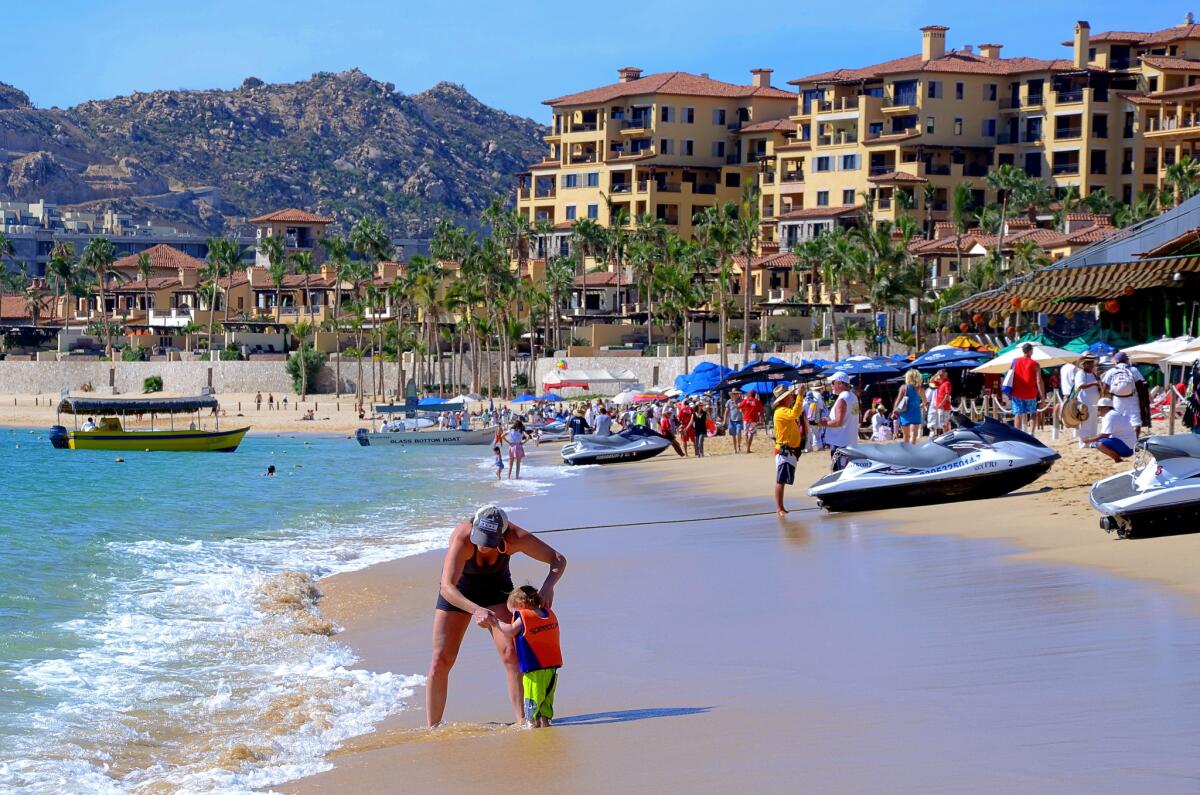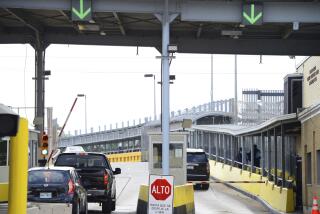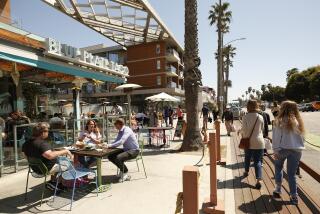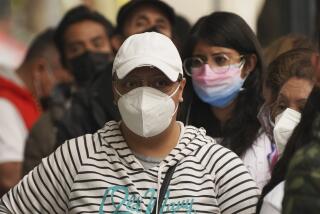Spring break in Cabo ends with 28 students contracting coronavirus

AUSTIN, Texas â In the days leading up to her trip to Cabo San Lucas, Mexico, Rajya Alturi started to get nervous.
A senior at the University of Texas, Alturi was seeing warning signs from school and public health officials not to travel because of the coronavirus. But as the spring break trip approached, there was still no warning from the Centers for Disease Control and Prevention regarding Mexicoâs risk of coronavirus exposure.
Feeling doubtful, Alturi ultimately decided to forfeit the $1,900 she had paid for the trip and not take the risk of exposing herself to the virus.
âBoth of my parents are doctors, and they didnât really feel comfortable with me going,â Alturi said. âA lot of students had definitely saved all year to be able to go, but at the end of the day, despite having a trip and all that, it didnât seem worth it to me to go with the health situation.â
Had she not canceled, Alturi could have been among the 28 UT students who Austin Public Health officials say contracted the coronavirus on the trip. The confirmed cases were part of a larger group of 70 young people who took a charter plane to Mexico. Some returned to Austin on a commercial airline.
Amid coronavirus restrictions, tips for walking, hiking, cycling, running near home
The names of the students and their exact dates of travel havenât been made public, but officials say they have been in contact with all 70, and those who are infected are quarantining while others are being monitored.
Adina Traub, a sophomore at UT, said the company that runs the trip, JusCollege, comes to UT and other campuses every year to recruit attendees.
Traub said she put a deposit down in April 2019, and made a total of $2,000 in payments to JusCollege as the trip approached.
But as COVID-19 spread, she began to feel uncertain. She said JusCollege sent messages to registrants saying that the trip was still on and that no travelers from other trips had been sickened. They also offered travel insurance through a third party, but it didnât cover a pandemic, she said.
JusCollege did not respond to multiple requests for comment.
Right before Traub was scheduled to leave, UT officials announced the campus would shut down, and President Trump announced a ban on people entering the country from much of Europe.
âEveryone was saying: âDonât travel. Donât travel,ââ she said.
Traub, who has asthma, was worried about catching the virus from other attendees and made the decision not to go, along with about 30 others from her sorority.
âOut of the 36 girls who were going, only four ended up going,â she said. âEverybody else pulled out.â
Start your day right
Sign up for Essential California for the L.A. Times biggest news, features and recommendations in your inbox six days a week.
You may occasionally receive promotional content from the Los Angeles Times.
The four who did go faced a tough choice, she said. They were from New York, where the virus was spreading rapidly. With the campus and their sorority house closed, they had to decide whether to pay for hotel rooms in Austin and lose the money theyâd paid toward the trip, or to take a chance and go.
âThey were like, âOh, Cabo is probably safer than going home to New York,ââ Traub said.
Traub and others said they have heard nothing from JusCollege about refunds, despite multiple attempts to reach them.
JusCollege did not respond to requests for comment. On March 25, JusCollege announced it had postponed all other spring break trips, and would work to provide partial refunds or credits to those who couldnât attend the new dates.
On its website, the company still is advertising spring break trips to Cabo San Lucas for a starting price of $499.
More to Read
Sign up for Essential California
The most important California stories and recommendations in your inbox every morning.
You may occasionally receive promotional content from the Los Angeles Times.












